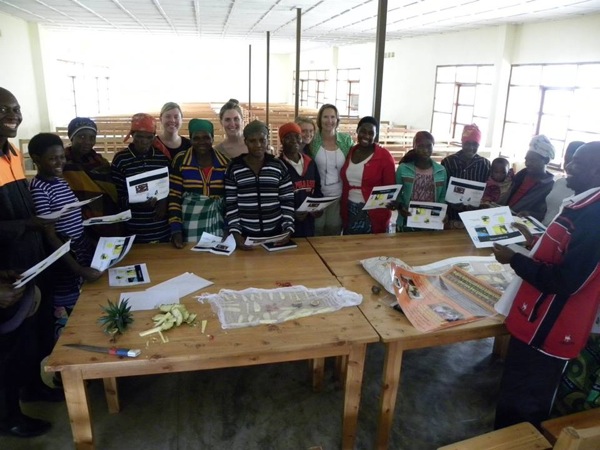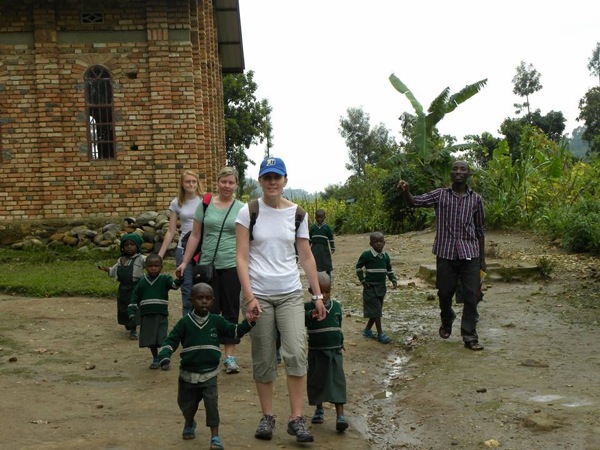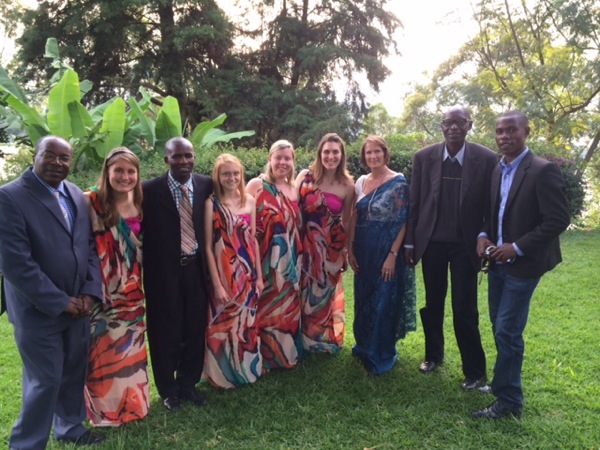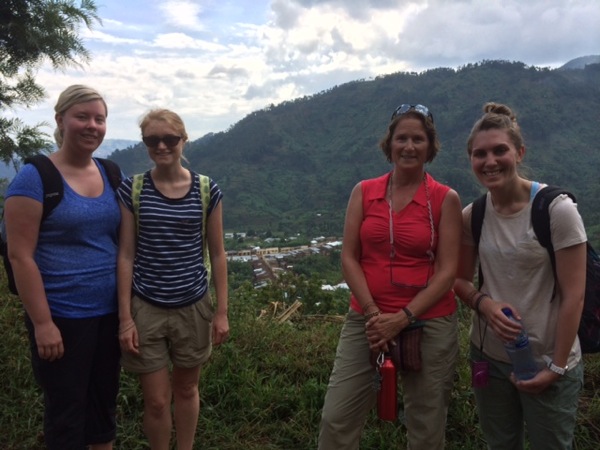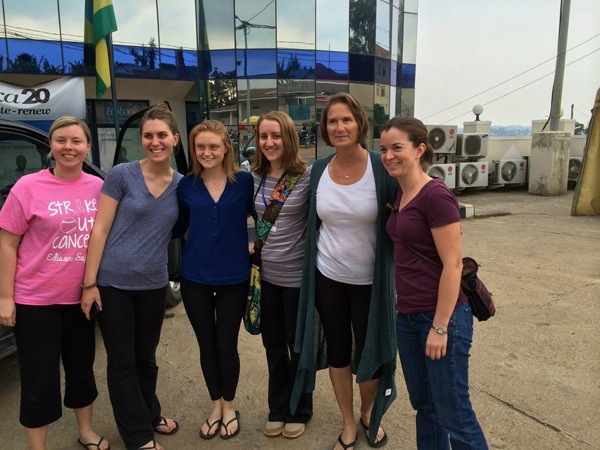The fruits of their labors
Nursing students visit Rwanda to teach women how to dry fruit
4:42 p.m., July 7, 2014--Access to maternal health care in Rwanda has improved significantly in the past several years, but inadequate nutrition among pregnant women still contributes to a higher-than-average rate of babies born with low birth weight.
Ironically, the health of mothers-to-be often worsens once they enter the hospital at the mandated 28 weeks of gestation.
Global Stories
Fulbright awards
Peace Corps plans
“We complain about hospital food here in the U.S.,” says Lisa McBeth, instructor in the School of Nursing at the University of Delaware. “But in small villages in Rwanda, patients are expected to bring their own food to the hospital. That’s not so bad for women who have family nearby, but it can be a real problem for those who have no support system in place.”
Four of McBeth’s senior nursing students -- Jen Rose, Jenna Specht, Katie Reilly and Katherine Moulsdale -- decided to do something about the problem. For their capstone project in NURS 411 Topics in Healthcare Delivery: High Risk Labor and Delivery, they developed a plan to teach women to dry their own fruit.
In June, Rose, Specht and Reilly traveled to Banda, Rwanda, to implement the plan with the assistance of a local nurse who helped coordinate the project and translate informational materials.
McBeth points out that fruit is plentiful in Rwanda, but there’s no refrigeration and no way to save it when it all ripens at once.
“When the women heard that dried fruit would last for six months, they couldn’t believe it,” says Specht.
The three-week trip was life changing for the young nurses.
“I really didn’t know what kind of nursing I wanted to do before I went to Rwanda,” says Reilly. “When I saw how vulnerable the women were during delivery, I realized that a nurse could have a really big impact on their experience. Now, I know that I want to go into maternity health, preferably somewhere outside the U.S.”
Rose was set on working in neonatal intensive care before the trip, but she has since accepted a position in maternal and child health at Valley Hospital in Ridgewood, New Jersey.
“Seeing the primitive conditions in Rwanda made me appreciate what we have here,” she says. “But at the same time, I saw that they were still getting the job done there with a lot less, which really impressed me.
“The women all want us to come back, and we’d like to go back so that we can see how the project is going,” she adds.
For McBeth, the trip was a reminder of how great the needs are in rural Rwanda -- and not just in health care.
“I’d like to put together an interdisciplinary team of people from the University to support the village,” she says. “They have needs in areas ranging from hospitality and engineering to business and finance.”
One possible place to start?
Turning the fruit-drying project into a money-making enterprise.
About the Trip
The trip to Rwanda was supported by a Global Scholars Award from the Institute for Global Studies at the University of Delaware. The Global Scholars Award is a competitive program that provides full-time faculty up to $10,000 for global research and scholarship related to one of six themes: Food and Nutrition; Energy and Infrastructure; Human Security and Governance; Arts and Culture; Global Health; and Education and Engagement.
McBeth plans to return to Rwanda in 2015 to follow up on the fruit-drying project and look into new areas where UD students and faculty could have an impact.
Article by Diane Kukich
Photos courtesy of Lisa McBeth






